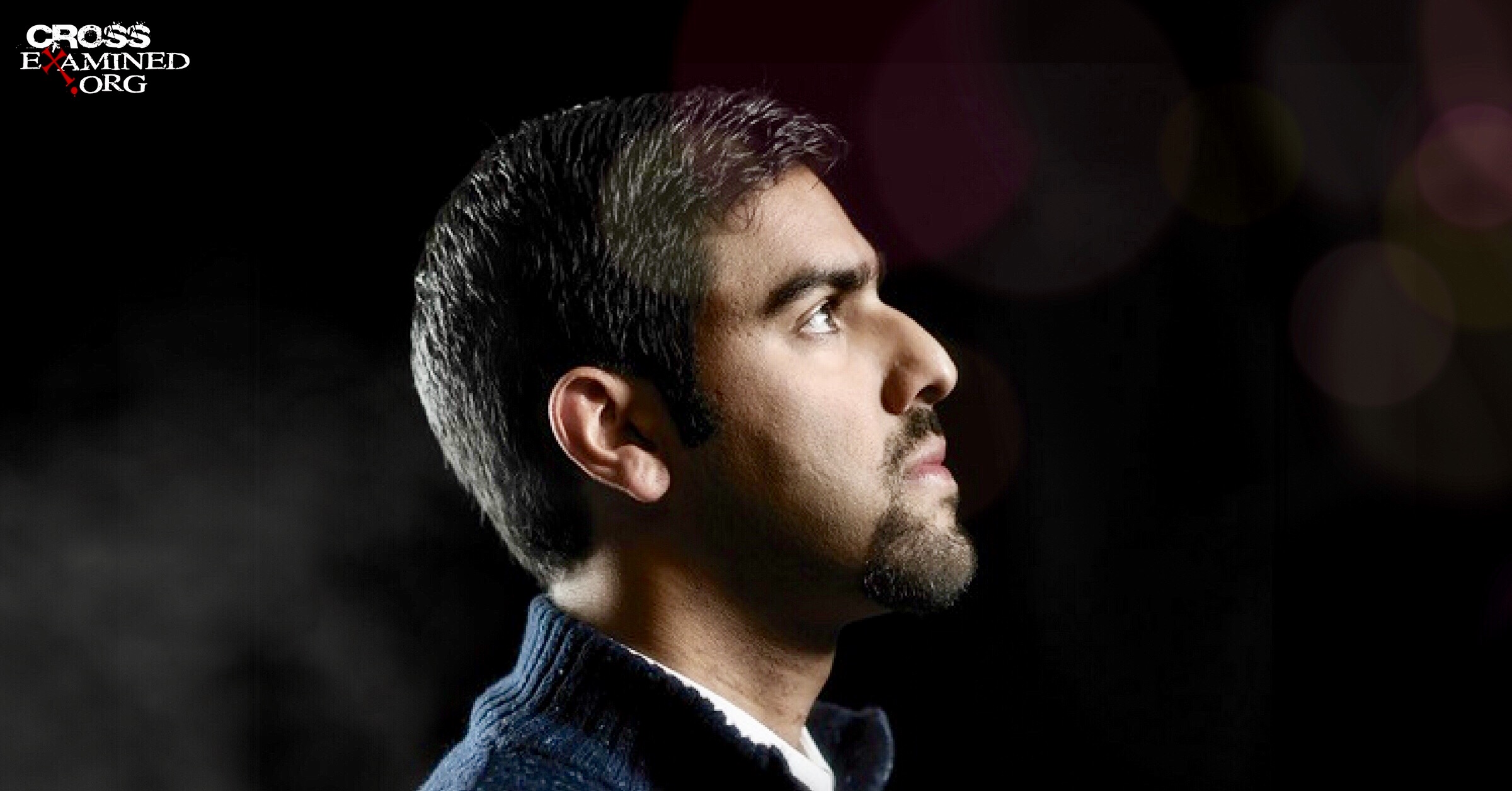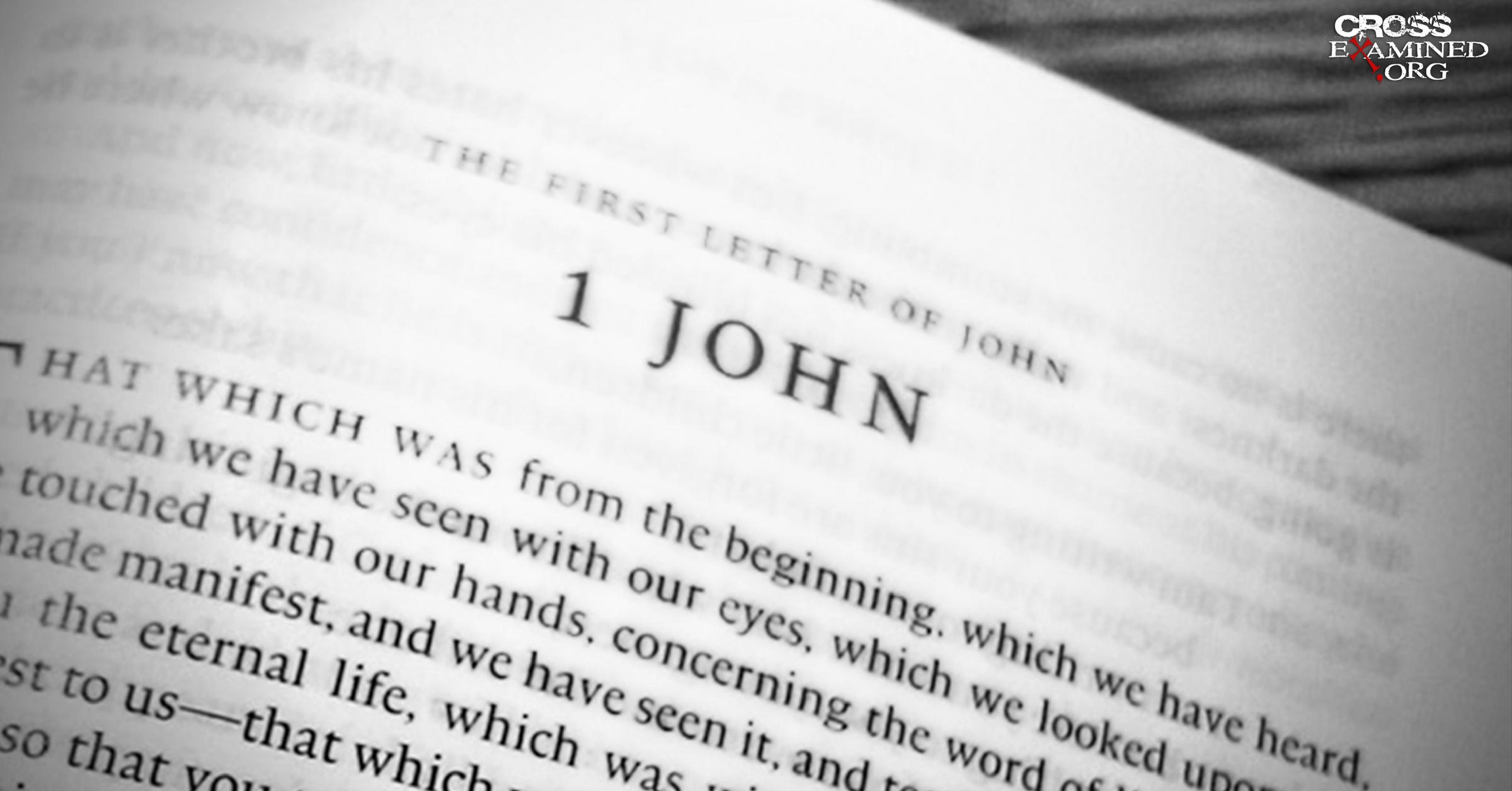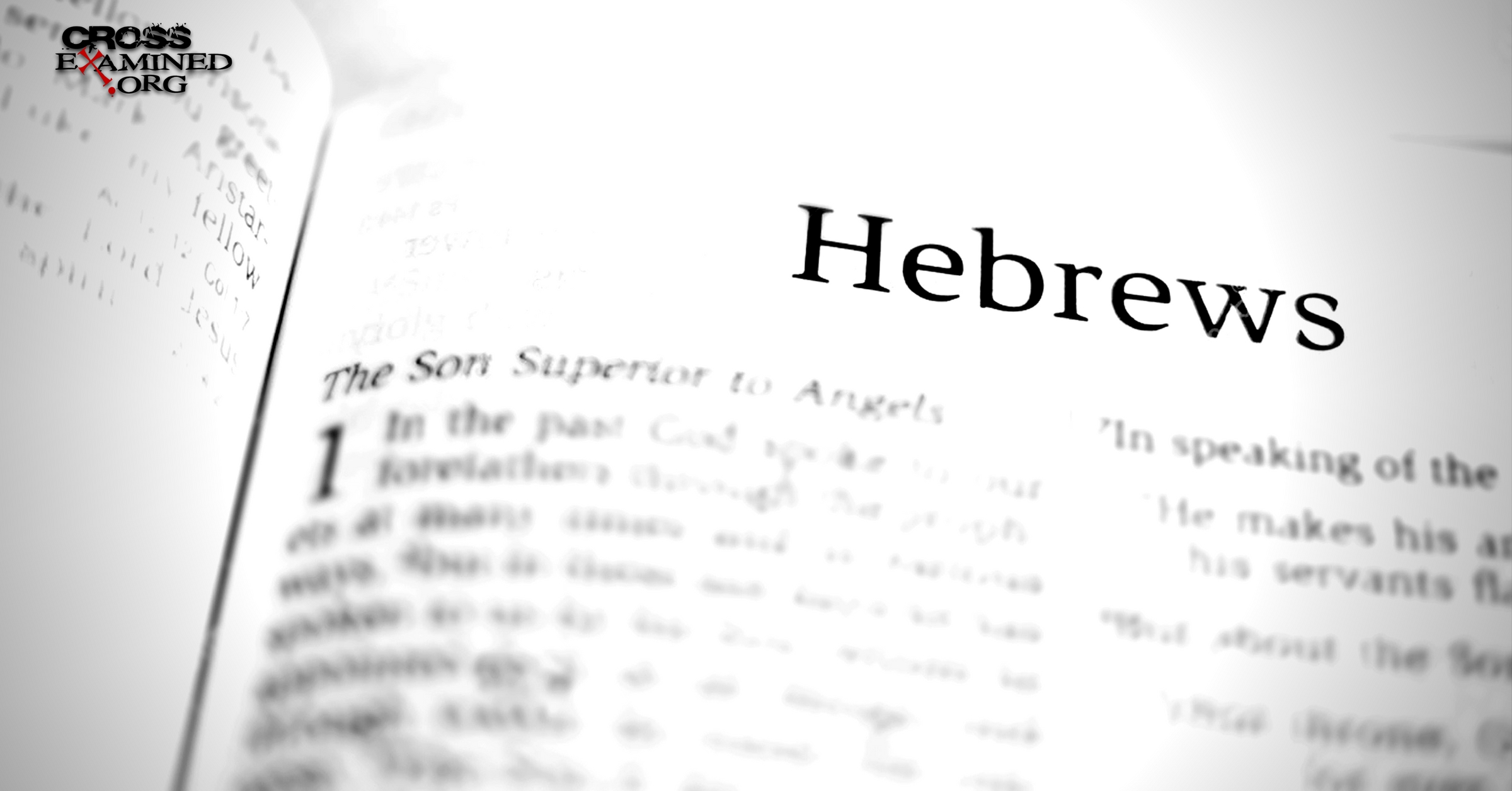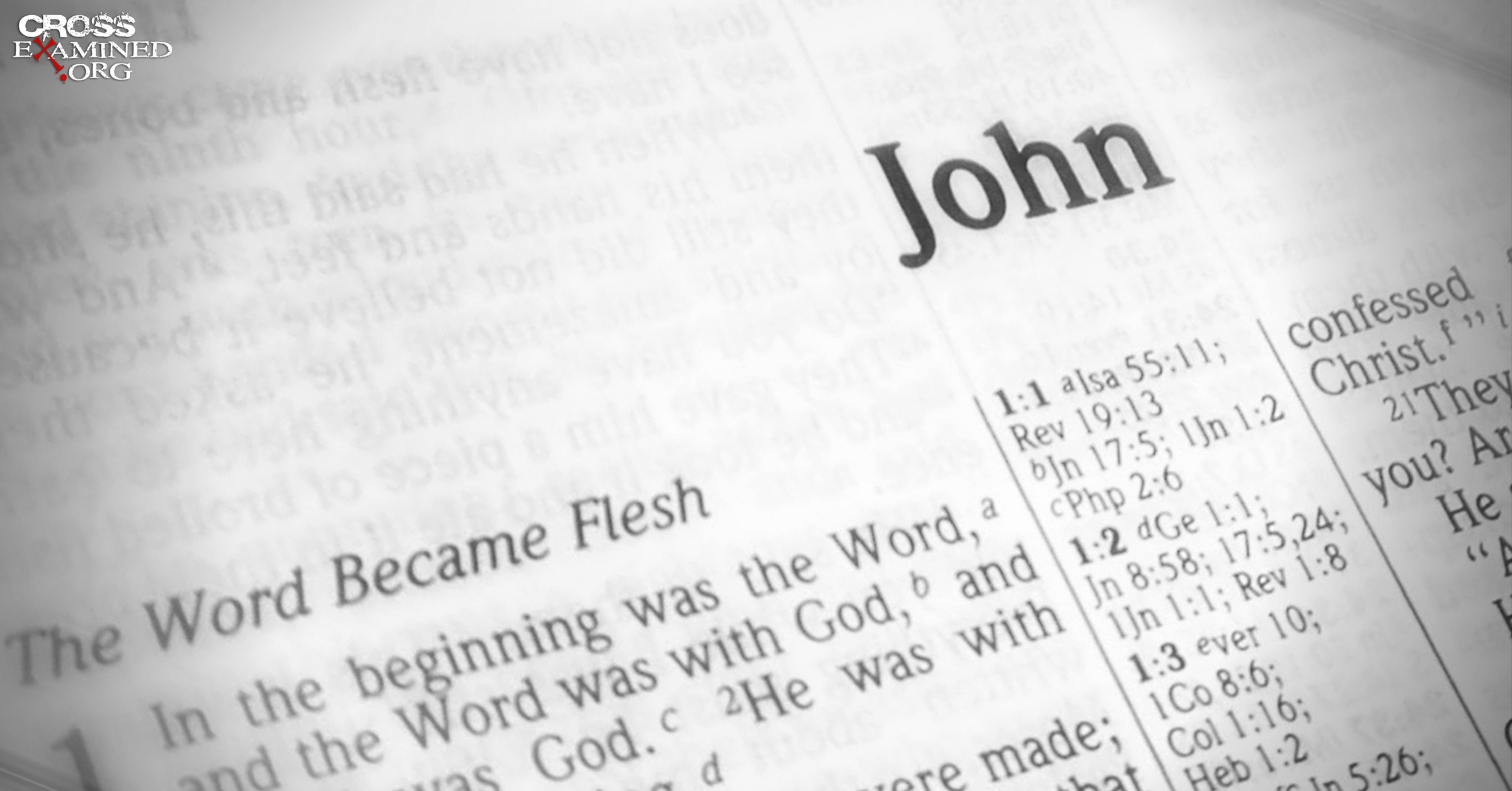By Evan Minton
Free Will is a topic debated among Christians and even some non-Christians. The Christians who affirm that men have free will in the libertarian sense are Arminians, Molinists, and Open Theists. Christians who deny free will in the libertarian sense generally fall into the Calvinist camp. I have argued elsewhere that libertarian free will is the only true kind of free will that there is. Compatibilism, despite what the name suggests, doesn’t reconcile free will and determinism. Compatibilism, at most, would explain why we feel like we’re free when we make our actions even though we’re determined. Compatibilism would explain why I feel like a free creature despite being the puppet of God, my sinful nature, my desires, or the molecules in my brain ((depending on what kind of determinist you are)). But it doesn’t actually let us affirm the two propositions; (A) Man is determined, and (B) Man is free. Why? Because on compatibilism, man still cannot choose between alternatives. He can only choose what God, his sinful nature, his brain chemistry, or his desires caused him to choose. When placed with the options of choosing A or Non-A, God/Sin Nature/Neurological Processes/my desire will cause me to choose one, and I have no ability whatsoever to choose the opposite of what I chose. I fail to see how this is “free” will in any meaningful sense. Saying that “You’re free to choose what you’re determined to choose” is tantamount to telling a person who’s tied up “You’re free to stay put.”
Libertarian Free Will is the only true free will there is. If you deny that, you might as well deny that we have free will altogether. I believe we do have free will, and I have both philosophical reasons as well as scriptural reasons for holding this belief. Sometimes the philosophical reasons and biblical reasons coalesce (as you will see below). Below, I will list 3 arguments for the truth that man is a free creature. Before I do, let me make sure you understand the definition of “free will” I’ll be employing. As stated, I reject the idea of compatibilism (that determinism and free will can co-exist) because you cannot choose anything except what you were determined to choose. The Free Will that exists in man is libertarian free will.
Libertarian Free Will asserts that:
1: The Man is the origin and cause of his own actions.
2: The Man, in most cases, [1] will have the ability to choose between 2 or more options. And whichever option he chooses, he did not have to make that choice. He could have chosen one of the alternatives. For example, if presented with A and Non-A, man chooses A, but he didn’t have to choose A. He could have chosen Non-A instead. It laid within his power to choose Non-A. He just didn’t exercise that power.[2]
3: The Man’s choice was undetermined. Nothing internal or external to the man causally determined the man to make the choice he did. His choice was uncaused or undetermined.
Now, what reasons might be given for believing that God has endowed human beings with this kind of free will?
1: The Argument From Moral Accountability
It seems to me that if a man is determined to do what he does, then he cannot be blamed for his own actions. If God causally determined man to sin (as many Calvinists claim), then how can the man be blamed for that sin? Wouldn’t God be the one to blame? After all, God is the one who causally determined the man to do what he did? How does the human being get the blame but God magically gets off the hook? If our sinful nature causally determined us to sin, why blame us? Why not just blame the sinful nature within us? If, as on atheistic determinism, the molecules in motion inside our brains caused us to do what we did, why blame us? Why not blame our brain chemistry? “It’s not my fault! My brain chemistry made me do it!” Causes are always responsible for their effects. If God causally determines people to sin, then God is responsible for our sins. If our sinful nature causally determines us to sin, then our sinful nature is responsible for our sins. If our brain chemistry….you get the point. Whatever caused us to do what we do is ultimately responsible for what we do. This is common sense that determinists of all stripes willfully deny. If we are not the origin and ultimate cause of our actions, then we are not responsible for our actions. Whatever is the origin and ultimate cause, that thing is responsible. And it is that thing that will get the blame.
If I knock a ball off a table, is the ball to blame for falling to the floor? No! Well, who or what is? Obviously, I am. I’m responsible for the ball falling because I’m the one who caused the ball to fall.
At this point, the determinist who affirms compatibilism may respond, “But Man did what he did because he wanted to. He wasn’t forced against his will. His action was in line with his will.” Okay, but why did the man want to do what he did? Many Calvinists say that God causes people to want X and the want then determines them to do X. In this case, the problem is merely kicked upstairs. Man did X because he wanted to do X, but the reason he wanted to do X was that God caused him to want to do X. So, God is still to blame. Determinist Compatibilists who are atheists will substitute the word “God” or “Neurological processes” and make the same argument, but the argument fails on naturalistic determinism for the same reason it fails on divine determinism. From here on, I will only address theological forms of determinism. I only mention naturalistic determinism to point out that it suffers from the same flaw as Calvinism’s.
Some Calvinists believe that Adam had libertarian free will (LFW) and he sinned, from then on, no one was free. Our sinful natures causally determined us all to commit sins of various kinds. In this case, God isn’t on the hook, but neither is a man. You can’t blame a man for sinning on this view. It’s in his nature. Just as it’s in a lion’s nature to kill gazelles. You don’t blame the lion for not choosing a vegan diet, though, do you? If it is in X’s nature to do Y, we generally don’t have any moral outrage at X. We excuse X by saying, “It’s in X’s nature. X can’t help it.” Why do this with animals, but not humans?
Moreover, we generally realize that if a person could not choose other than what they did, they are not culpable. If I knock you over, you don’t hold me accountable if you realized that the reason I knocked you over was that my shoe was untied unbeknownst to me, and I tripped over my shoelace while running, causing me to slam into you and knock you over. If you knew my situation, you would most likely excuse me, yes? Now, on the other hand, if I took my hands and purposefully shoved you down, that would be a different story. You would hold me accountable because you knew I had it within my power to choose; otherwise, I did it on purpose, and the actions’ origin and the ultimate cause was my volition (not something external to me as in the former example).
If a man has no arms and you tell him to hug you, and he doesn’t because he has no arms, you wouldn’t penalize him, would you? No! Why not? Because the man was not able to hug you. Everyone intuitively believes that an “ought” implies a “can,” well, except for determinists who believe God penalizes man for sinning when he wasn’t able to choose otherwise, and penalizes man for not believing in Christ when they believe that man was unable to believe. But even they accept this premise in all other areas of life, just not theology. I could never accuse a Calvi of being consistent.
It seems to me that unless man is free in the libertarian sense, he cannot be held accountable for anything he does.
My argument for free will is as follows:
1: If Men Aren’t Free In A Libertarian Sense, They Cannot Be Held Responsible For Wrongdoing.
2: The Bible teaches that God will hold men accountable for wrongdoing.
3: Therefore, men have Free Will in a libertarian sense.
This is a logically valid argument. The rule of inference this argument goes by is “Modus Tollens.” So, in order for the conclusion to be reached, both premises must be true. I’ve given us good reasons to believe that premise 1 is true. In fact, premise 1 is the only premise in this argument that Calvinists will deny. No Calvinist will deny premise 2. Nevertheless, let me give some of the biblical evidence for 2 anyway.
“Then I saw a great white throne and him who was seated on it. The earth and the heavens fled from his presence, and there was no place for them. And I saw the dead, great and small, standing before the throne, and books were opened. Another book was opened, which is the book of life. The dead were judged according to what they had done as recorded in the books. The sea gave up the dead that were in it, and death and Hades gave up the dead that were in them, and each person was judged according to what they had done.” – Revelation 20:11-13
“So then, each of us will give an account of ourselves to God.” – Romans 14:12
“For we must all appear before the judgment seat of Christ, so that each of us may receive what is due us for the things done while in the body, whether good or bad.” – 2 Corinthians 5:10
These 3 passages are only a small sampling of passages stating that God will hold man accountable for his actions. Clearly, the second premise is true. It seems then that both premises are true, in which the conclusion follows: 3: Therefore, men have Free Will in a libertarian sense.
2: In Many Places, The Bible Asserts Or Implies That Man Has Free Will
Free Will is implied throughout The Bible, but there are a few places where it is explicitly evident. For example, in 1 Corinthians 10:13, the apostle Paul wrote: “No temptation has overtaken you, except what is common to man. And God is faithful. He will not allow you to be tempted beyond your ability, but with the temptation, will provide a way of escape also so that you will be able to endure it.” This is probably the most powerful evidence of libertarian free will, the most explicit example of libertarian free will, and the most difficult-for-determinists-to-get-around passage in the entire Bible. Paul says that the temptation that afflicts his readers isn’t anything unusual, nothing unique to them. He then goes on to say that God is faithful, and won’t allow the temptation to sin to be so overwhelming that it’s impossible for them to resist it. Instead, God will provide “a way of escape” so that they’ll endure it and ergo avoid sinning.
Paul is assuming here that his readers don’t have to sin. Sin is not inevitable. God provides a way out so that we’ll be able to avoid sin. If we do sin, it’s because we refused to take “the way of escape” that God offered. If we don’t sin, it’s because we chose “the way of escape.” This verse presupposes libertarian free will. It presupposes that the listener does not have to sin. He’s faced with A (sin) and Non-A (The Way Of Escape). He can choose either and is responsible for whichever one he chooses. The determinist cannot make sense of this verse. If humans are causally determined to do everything we do, then “the way of escape” was not a possible option for those who sin. “The way of escape” on determinism, was nothing but an illusion! Only if man truly has the power to genuinely choose between alternatives, can we say that “the way of escape” was a possible option for those who sinned.
Paul is essentially saying in 1 Corinthians 10:13 “Look, you don’t have to sin. You don’t have to. God will provide a way out so you’ll be able to endure it. If you choose not to take His way out, it’s your fault, not God’s.”
“See, I set before you today life and prosperity, death and destruction. For I command you today to love the Lord your God, to walk in obedience to him, and to keep his commands, decrees, and laws; then you will live and increase, and the Lord your God will bless you in the land you are entering to possess. But if your heart turns away and you are not obedient, and if you are drawn away to bow down to other gods and worship them, I declare to you this day that you will certainly be destroyed. You will not live long in the land you are crossing the Jordan to enter and possess. This day I call the heavens and the earth as witnesses against you that I have set before you life and death, blessings and curses. Now choose life, so that you and your children may live.” – Deuteronomy 30:15-19
In this passage, Moses was clearly giving the Israelites a choice to serve God or to serve idols. Now, if the Israelites thousands of years ago had a choice, why don’t we have a choice today? In this passage, Moses was saying, “I set before you A and Non-A. I’d prefer it if you chose A”. Sounds like the libertarian free will to me!
“But if serving the Lord seems undesirable to you, then choose for yourselves this day whom you will serve, whether the gods your ancestors served beyond the Euphrates, or the gods of the Amorites, in whose land you are living. But as for me and my household, we will serve the Lord.” – Joshua 24:14-15
Joshua is clearly giving the Israelites a choice to serve God or to serve idols. Now, if the Israelites thousands of years ago had a choice, why don’t we have a choice today?
Moreover, on the Calvinist view, God causally determines everything, so we’d have to conclude that the apparent offer to choose between the one true God and pagan gods was insincere. Is God insincere? Surely not! The most reasonable inference is that the Israelites had the legitimate option of choosing A (worshiping the one true God), or Non-A (worshiping idols). And whichever choice they made, they didn’t have to have made and could have chosen otherwise.
Moreover, several passages in The Bible talk about “Freewill offerings” (e.g., Leviticus 22:23, Numbers 29:39, Deuteronomy 12:6, Deuteronomy 16:10, Ezra 8:28). How can you give a “Freewill offering” if you have no free will!?
3: The Argument From True Love
If human beings don’t have libertarian free will, then it is impossible for love to exist. This argument for the existence of free will goes as follows
1: If man’s love isn’t given freely, it isn’t genuine.
2: Man’s love is genuine.
3: Therefore, man loves freely.
This is a logically valid argument as the syllogism takes the form modus tollens. Therefore, in order to affirm the conclusion, we’ll have to affirm that both of the premises are true. So, are the premises true, or are they false? Well, let’s look at them.
Premise 1:
If our love for God and one another weren’t given of our own free will, it would be impossible for our love to be genuine. Instead, we would have an artificial love, a programmed love, a forced love. Love, in order to be genuine, must be freely given. People who give true love must have the freedom to choose not to love. To see the point: imagine it’s the year 3,000 where robotics have been perfected to the point where robots look, sound, and behave 100% identical to real human beings. You go down to “Robot Depot” to buy yourself a wife. You buy this android that looks as beautiful as a supermodel. Based on her looks, you already know she’s got the attractiveness quality. But what of her character? The manual she comes with tells you that you can program her personality anyway you desire. So, you program her to always do whatever you want, to always put your needs above hers, and to always laugh at your jokes, etc. You program her to never leave you for another man. You program her to say “I love you” 20 times a day. You program her to never bother you while watching football. In fact, you program her to be just as into football as you are. You program her to be the perfect wife.
Question: would any of this be meaningful to you? Would you feel loved? No. You would clearly recognize that her love for you is artificial. Every act of kindness, every display of affection, and every “I love you,” was your doing, not hers. You causally determined her to do these things for you. They did not originate within her. All of her acts of love and selflessness would be empty gestures because you caused her to do them, and she had no capability of doing differently.
Similarly, if God causally determined everyone to love Him, praise Him 24/7, to never disobey Him, and to always do good, our actions would be devoid of meaningfulness. The only reason we praise Him is that He programmed us to praise Him. The only reason we abstain from sin is that He programmed us to abstain from it. It would be the same for our “love” for one another. If God causally determines a man to love his wife, I don’t see how that would be any more meaningful than when a little girl causes a Ken doll to show love to a Barbie doll.
I think premise 1 is most certainly true. Even if the Calvinist denies that God causally determines everything, and wants to scribe the determination to the sinful nature or our desires alone, that doesn’t help anything. Suppose in the aforementioned robot-wife illustration that I didn’t causally determine my wife to do all those things, but one of my close friends did. He got me a robot wife and programmed her to do all those things for me because he knows what kind of wife I would like. Even though the programming didn’t come from me, I still wouldn’t feel loved by this robot woman because she was still unable to choose otherwise. So, in a similar way, if my nature, desires, or brain molecules causally determine me to love God and my neighbor, it would be just as meaningless as if God were the One pulling the strings.
Premise 2:
Why think that our love is genuine? Maybe The Calvinist can bite the bullet and say, “Okay, I agree. Without libertarian free will, our love is worthless automata. But so what? Maybe our love is worthless automata?” First of all, I’d like to point out to my readers that I don’t think any Calvinist would deny premise 2. He’s more than likely to go after premise 1. Of course, that raises the question: Why would the Calvinist be reluctant to deny premise 2?
Because the Calvinist, like all Christians, realizes that God is perfect. God is a Maximally Great Being, and as such, has all great-making properties, including omniscience. If God omniscient, then He knows what kind of world would be one where true love could exist. If premise 2 is false, we’re forced to say that God created a loveless world! No one truly loves God; no one truly loves their neighbor! But, The Bible teaches that God wants our love for Him to be genuine. This is why the two greatest commandments are to love God with all of our hearts, souls, strength, and minds, and to love our neighbors as ourselves (see Matthew 22:37-39, Mark 12:30-31, Luke 10:27). God wants us to love Him with all of our hearts, souls, strength, and minds, and to love our neighbors as ourselves. If God did not want us to obey those commands, then why did He give them in the first place? Would God really create a world where love is impossible and then command us to love? That would be a rather stupid thing to do, wouldn’t it? Since God commands us to love Him and each other, that implies that we are able to love Him and one another. Given that only a world of free-will creatures is a world where fulfilling those two commandments is possible, it follows that God would prefer to actualize such a possible world, and since God would prefer such a world, it follows that He would actualize such a world.
Moreover, denial of premise 2 would entail a denial of biblical inerrancy. For The Bible implies that our love for God is real when it says, “We love because He first loved us.” (1 John 4:19). There it is, right in 1 John 4! “We love.” If you deny this premise, then you have to deny that this verse is true!
Conclusion:
Given the truth of the 2 premises, the conclusion follows logically and necessarily. Man loves freely.
4: The Appearance Of Free Will Problem
One of the problems I have with the Young Earth Creationist’s Argument that “The universe is really only 6,000 years old, God just made it look like it was billions of years old” is that it makes God out to be a deceiver. Yes, God had the freedom to make the universe in an advanced state, and He certainly made the wine at Cana in an aged state as it was the best-tasting wine (see John 4), and if the literal reading of Genesis is correct, God made Adam and Eve in adult bodies. BUT would God create Adam and Eve with an appearance of past history? There’s a difference between the appearance of age and past history. As Richard Deem wrote, “Did Adam have an appearance of history? Did he have a navel from a birth that never happened? Were his teeth worn at his creation, even though he had never eaten? Did Adam have calluses on his feet even though he had never walked? The Bible does not address these issues, and since Adam’s body is not available, we have no idea of the answers to these questions. Does the Bible compare Adam’s body to the creation? No! The analogy has no biblical basis and is based upon conjecture alone. Does the wine of Cana have an appearance of history? According to the biblical account, Jesus ordered water pots to be filled with water and, immediately, the water had become wine. Did it have an appearance of history? If the wine had been in wineskins (like the original wine), then one might say that it appeared to have been aged in the wineskins. However, the wine was still in the water pots. It had no appearance of history. Does the Bible compare the wine of Cana to the creation? No! Like Adam’s body, the wine of Cana analogy has no biblical basis and is based upon conjecture alone.”[3] For God to have created a universe like he did, He would have created an appearance of past history. History of millions of years of erosion, a bombardment on the surface of the moon, erosion of the canyons on Mars, starlight reaching us from millions of light-years away, but reaching us in thousands because it was created in-transit, etc. This would make God a deceiver, and The Bible teaches that God cannot lie (see Numbers 23:19, Titus 1:2, Hebrews 6:18). Since God cannot lie, it follows that He could not have created a universe that appears to have endured through millions of years of history.
Well, it appears the same problem affects Calvinists in the realm of free will. Even Calvinists won’t deny that we appear to have free will. We feel like we have free will. Most of us think our actions are free. It certainly seems like when we make a choice; we could have done otherwise. Calvinists will just deny that this appearance and feeling is real. They will say it’s a delusion or illusion. The problem is that this entails that God created a universe with a deceptive appearance. Everyone is a puppet of His, but He has caused us to believe that our actions are free. He pulls all the strings, but He has implanted in us belief that what we do is done of our own volition, and that we had the power to choose other than what we chose.
In fact, I would not shy away from arguing that belief in free will is a properly basic belief. I think most people innately believe that they’re free, just as they believe objective morality exists, and that the external world exists. It’s only the case that people stop believing in these things when a determinist, relativist, and solipsist respectively talk them out of it. Why would God deceptively form our minds like this? Why would he plant an innate belief in libertarian freedom if that did not reflect reality? It seems to me that if man isn’t truly free, then God is a deceiver, just as God is a deceiver if the starlight hadn’t been traveling for millions of years.
5: The FreeThinking Argument
This argument originated with apologist Tim Stratton, head of FreeThinking Ministries. The premises of the argument demonstrate both the existence of free will as well as the existence of the soul, and it indirectly points to the existence of God. So it simultaneously slays Calvinism and Atheism, at least if all of the premises are true. Stratton’s argument goes as follows
1- If naturalism is true, the immaterial human soul does not exist.
2- If the soul does not exist, libertarian free will does not exist.
3- If libertarian free will does not exist, rationality and knowledge do not exist.
4- Rationality and knowledge exist.
5- Therefore, libertarian free will exists.
6- Therefore, the soul exists.
7- Therefore, naturalism is false.
8- The best explanation for the existence of the soul is God.
Premises 1 and 2 seems obviously true to me. If Naturalism is true, then we’re just organic robots. If atheism is true, all there is matter, energy, space, and time. There are no “souls” or “spirits.” Most atheists would agree with premise 1. In fact, I’d be shocked if I found one who thought there was a soul inside of his body or thought spirits existed. If this is the case, if we are not souls in bodies, then it follows that we’re just “molecules in motion” as Frank Turek likes to put it. If Naturalism/Atheism is true, we are nothing but automata. All of our movements, feelings, thoughts, and opinions are causally determined by electrochemical processes in our brains, molecules, and atoms bumping about, and other physical processes. “You” are a meat machine. As geneticist Francis Crick put it “Your joys and your sorrows, your memories, and your ambitions, your sense of identity and free will, are in fact no more than the behavior of a vast assembly of nerve cells and their associated molecules.”[4]
So if atheism is true, we don’t have souls, and if we don’t have souls, we don’t have free will. We’re just “molecules in motion.” What about premise 3? Is it true that “If libertarian free will does not exist, rationality and knowledge do not exist?” I think so! Tim Stratton, in his article “The Freethinking Argument In A Nutshell,” wrote “Premise (3) is equivalent with ‘if all things are causally determined, then that includes all thoughts and beliefs.’ If our thoughts and beliefs are forced upon us, and we could not have chosen better beliefs, then we are simply left assuming that our determined beliefs are good (let alone true). Therefore, we could never rationally affirm that our beliefs are the inference to the best explanation – we can only assume it. Here is the big problem for the atheistic naturalist: it logically follows that if naturalism is true, then atheists — or anyone else for that matter — cannot possess knowledge. Knowledge is defined as ‘justified true belief.’ One can happen to have true beliefs; however, if they do not possess warrant or justification for a specific belief, their belief does not qualify as a knowledge claim. If one cannot freely infer the best explanation, then one has no justification that their belief really is the best explanation. Without justification, knowledge goes down the drain. All we are left with is question-begging assumptions.”[5]
Is Premise 4 true? Yes. I think it is. It is clear that human beings do possess rationality and knowledge. To contradict the claim that humans possess rationality and knowledge would be to affirm that humans possess rationality and knowledge. To deny the claim would be to affirm it. Why do I say this? Because the detractor of this premise would be saying that he’s giving us the knowledge to the contrary. Moreover, if one rejects knowledge, why should anyone listen to them? If one denies that he is a rational man, why should we listen to him? Why listen to someone who openly admits that he is irrational?
Given the truth of the 4 premises, steps 5-7 follow. Libertarian free will exists, therefore the soul exists; therefore naturalism is false.
As Stratton will tell you, this argument has 3 deductive conclusions and 1 inductive conclusion. The deductive conclusion is that naturalism is false; the inductive conclusion is an inference that God is the best explanation for why the human soul exists. An atheistic universe with spirits is implausible prima facie. It makes more sense to me to think that if souls exist, immaterial minds, then there was a “Mega Mind” that created all of them. Given that this article is pretty lengthy as it is, I won’t go any further into The FreeThinking Argument’s inductive conclusion than that.
This argument kills 2 birds with 1 stone. Those birds are named Atheism and Calvinism.
For a full, in-depth defense of this argument, check out this 48-minute lecture by Tim Stratton. –> http://freethinkingministries.com/test-video-2/
Conclusion
For these 5 reasons, I believe human beings have libertarian free will. I cannot bring myself to embrace any form of determinism. There are too many reasons both philosophically and exegetically to believe man has free will.
Footnotes
[1] When I say “most cases,” I mean that there will be some instances in which only one choice will be available for us to choose from. Libertarians aren’t committed to the view that we must always in all circumstances, be able to choose between alternatives. For example, if you jump off a building, clearly your only option is to fall to the ground. If a man snorts cocaine, he is addicted and now can do nothing but snort it unless either God miraculously frees him or rehab rehabilitates him. In the case of jumping off of buildings and additions, man cannot choose Non-A, but man can choose Non-A in many circumstances. Ken Keathley calls these “freedom permitting circumstances.” The circumstance before jumping off the building was a freedom permitting circumstance. The circumstance after you jumped off was not.
[2] This does not apply to salvation. I am not a Pelagian. I believe man is free to either choose to receive Christ or to reject Him, but man must be given this ability by The Holy Spirit. Man must be given what Arminian theologians call “Prevenient Grace.” To see the biblical case for the doctrine of Prevenient Grace, see my blog post “What Biblical Evidence Is There For Prevenient Grace?” I believe man’s will must be freeD in order for him to come to Christ.
[3] Richard Deem, from the online article “Appearance Of Age — A Young Earth Problem,” http://www.godandscience.org/youngearth/appearance.html
[4] Francis Crick, The Astonishing Hypothesis, 1994 cited in Mariano Artigas, The Mind of the Universe: Understanding Science and Religion, Templeton Foundation Press, 2001 p. 11.
[5] Tim Stratton, “The FreeThinking Argument In A Nutshell,” November 30th, 2015, http://freethinkingministries.com/the-freethinking-argument-in-a-nutshell/
Evan Minton is a Christian Apologist and blogger at Cerebral Faith (www.cerebralfaith.blogspot.com). He is the author of “Inference To The One True God” and “A Hellacious Doctrine.” He has engaged in several debates which can be viewed on Cerebral Faith’s “My Debates” section. Mr. Minton lives in South Carolina, USA.
Original Blog Source: http://bit.ly/2h6DKqx










